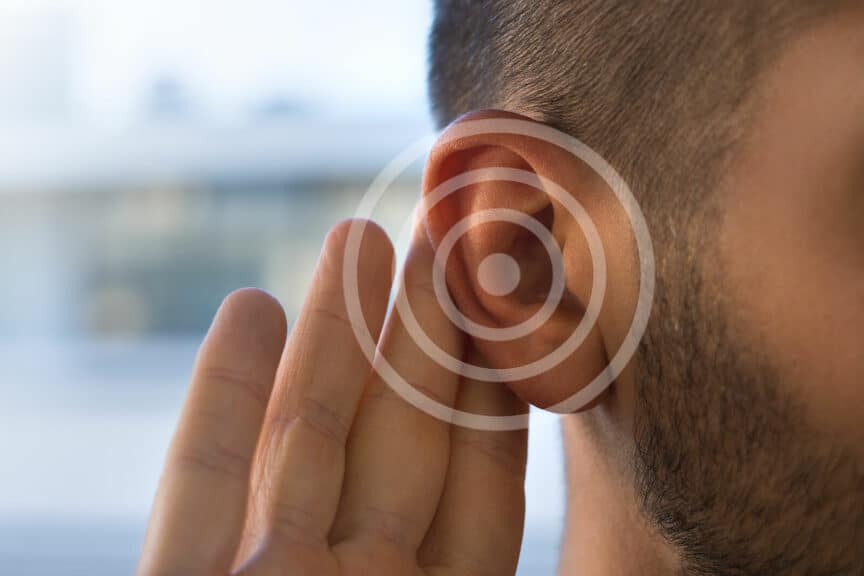Tinnitus, often described as a ringing, buzzing, or hissing sound in the ears, can significantly impact your quality of life. Millions of people worldwide grapple with this persistent noise, which may be caused by a range of factors. Some of the most common causes of tinnitus include exposure to loud noises, age-related hearing loss, and underlying health conditions. In this comprehensive guide to tinnitus, we’ll delve into the world of tinnitus, exploring its causes, effects, and potential solutions for effective tinnitus management.
Unraveling the Mystery of Tinnitus
Tinnitus, that sound that only you can hear, doesn’t come from nowhere. There are several causes of tinnitus, including:
- Loud Noise Exposure: Prolonged exposure to loud noises, whether through work environments or recreational activities, can damage the delicate structures of the inner ear. This may trigger tinnitus as well as lead to hearing loss.
- Age-Related Hearing Loss: As individuals age, changes in the auditory system can lead to hearing loss. Tinnitus and hearing loss often occur together, so if you’ve experienced hearing loss, you may also have tinnitus.
- Medical Conditions: Tinnitus can be associated with conditions such as high blood pressure, cardiovascular disease, or temporomandibular joint (TMJ) disorders.
- Earwax Blockage: An accumulation of earwax may interfere with normal hearing processes and contribute to the development of tinnitus.
- Medications: Certain medications, such as some antibiotics, antidepressants, and nonsteroidal anti-inflammatory drugs (NSAIDs), may have tinnitus as a side effect.
Understanding the underlying cause of your tinnitus is crucial in developing an effective approach to manage and alleviate tinnitus.
The Impact of Tinnitus on Daily Life
Tinnitus is not just an auditory phenomenon; it can have profound emotional and psychological implications. Individuals with tinnitus may experience:
- Stress and Anxiety: The persistent nature of the sound can lead to heightened stress levels and anxiety.
- Sleep Disturbances: Tinnitus often interferes with sleep, contributing to fatigue and a decreased quality of life.
- Social Isolation: Difficulty communicating or fear of not hearing others can lead to withdrawal from social activities.
Tinnitus Management Strategies
While there is no cure for tinnitus, various management strategies can help alleviate its impact. Some lifestyle management strategies include:
- Noise Management: Background noise, such as white noise or calming sounds, can help mask the perception of tinnitus.
- Stress Reduction Techniques: Practices like meditation, yoga, or deep breathing exercises can reduce stress and, consequently, the perceived intensity of tinnitus.
- Healthy Sleep Habits: Establishing a consistent sleep routine and creating a quiet, comfortable sleep environment can improve sleep quality.
The Role of Hearing Aids in Tinnitus Management
Hearing aids are designed not only to improve hearing but also to provide relief for individuals with tinnitus. By amplifying external sounds and enriching the auditory environment, hearing aids can divert attention away from the internal noise of tinnitus and help you focus on what you want to hear.
Many modern hearing aids also come equipped with customizable sound therapy features. These features allow users to choose from a variety of soothing sounds, such as white noise, ocean waves, gentle rain, or even their own music, to mask or distract from the tinnitus sound.
Clear communication is essential for mental well-being. Hearing aids can address any hearing loss associated with tinnitus, ensuring that individuals can engage in conversations and maintain social connections without added strain.
A Personalized Approach to Tinnitus Management
Tinnitus may present a daily challenge, but with the right approach, its impact can be minimized. Lifestyle modifications, coupled with the advanced capabilities of modern hearing aids, offer a comprehensive strategy for managing tinnitus and regaining control over one’s auditory experience.
Hearing health specialists can tailor hearing aid settings to the specific needs of individuals with tinnitus. This personalized approach ensures that the amplification and sound therapy components align with the unique aspects of each person’s tinnitus experience.
If you or a loved one are experiencing tinnitus, seeking professional help is crucial. We will conduct thorough assessments to determine the cause and severity of tinnitus, and help you explore all your tinnitus management strategies. If you’ve been living with tinnitus, it’s time to visit the experts and get tinnitus relief.

